25 Digestable Philosophical Books : For your Consideration
This is by no means an exhaustive list. It doesn't have nearly enough of all the world has had to offer and still offers. The works are mostly older and from the Western canon which was my own starting point with philosophical tradition. It also eschews the more dense, expansive difficult works of great minds such as Immanuel Kant , Hegel, Quine, Derrida etc. These are simply works one could pick up without much familiarity with philosophical inquiry and begin their journey with dealing with the thoughts that shaped the world we live in now. Some works are sociological , others political and economic but selected for throwing back to their roots; the roots in fact of the love of knowledge.
Many of these works are wrong headed, will certainly trigger and shake sensibilities, but that is what free-thought does; Challenge our ideas of what we ought and ought not to speak of.
Enjoy
1. Mating in captivity - Esther Perel
Perel is a therapist but really a relationship anthropologist. She describes the weight placed on relationships in a modern age yet our sexuality developed in the wild . Especially enjoyed it because she doesn't bend relationships towards women - but asks both parties to understand each other better in a world that demands a lot more than anyone can give.
Quote:
Today, we turn to one person to provide what an entire village once did:
a sense of grounding, meaning, and continuity. At the same time, we
expect our committed relationships to be romantic as well as emotionally
and sexually fulfilling. Is it any wonder that so many relationships
crumble under the weight of it all?”
2. Suicide - Emile Durkheim
Probably the first sociological work, Emile uses observations on the rising tide of suicides at a time of great modernity. It leads to startling implications about the pressures of modern life, the differences in the Catholic and Protestant world view and oddly , sunlight.
Quote:
“One cannot long remain so absorbed in contemplation of emptiness
without being increasingly attracted to it. In vain one bestows on it
the name of infinity; this does not change its nature. When one feels
such pleasure in non-existence, one’s inclination can be completely
satisfied only by completely ceasing to exist.”

3. The denial of Death- Ernest Becker
Becker ties the human condition to our awareness of death and our repression of the same in trying to somehow live forever through our work, our children, our religion. Being on the verge of death when he wrote this, it's both bleak and bold.
Quote:
“What does it mean to be a self-conscious animal? The idea is ludicrous,
if it is not monstrous. It means to know that one is food for worms.
This is the terror: to have emerged from nothing, to have a name, consciousness of self, deep inner feelings, an excruciating inner
yearning for life and self-expression and with all this yet to die. It
seems like a hoax, which is why one type of cultural man rebels openly
against the idea of God. What kind of deity would crate such a complex
and fancy worm food?”

4. The genealogy of morals - Nietzsche
Nietzsche is famously unsystematic, almost poetic in his writing. This, however, is more linear and his argument on how we have the morals we possess today. He boldly asserts things such as the difference between slave and master morality, the nihilism of believing in an afterlife and how the weak created the idea of evil to constrain the strong. Tell us how you really feel, Friedrich.
Quote:
“Human history would be nothing but a record of stupidity save for the cunning contributions of the weak”

5. Confessions - Augustine
This is an autobiographical tale by the Saint himself not being saintly. Better than those testimonies in church as Augustine shares his sexual appetite, greed and ambition and why he later converted. Not bad for the man that basically formed the logical arguments of Christianity to show why he first fled to the cross. It also has one of the most sophisticated musings on the nature of time you'll ever read.
Quote:
“How can the past and future be, when the past no longer is, and the
future is not yet? As for the present, if it were always present and
never moved on to become the past, it would not be time, but eternity.”

6. On liberty - John Stuart Mill & Harriet Taylor
Mill and his wife, Harriet Taylor weren't the first to espouse utilitarianism, the philosophy that our moral imperative is to maximize happiness for the most people and minimize suffering and all our actions be measured by that rather than by intent as Kant argued; but they certainly made it popular. It is a cogent calibration of the relationship between authority and autonomy; the masses and the individual and what it means to be free , yet dependent of each other. This work is one of the pillars for modern ideals of free speech cemented by representative government.
Quote:
If all mankind minus one, were of one opinion, and only one person were
of the contrary opinion, mankind would be no more justified in silencing
that one person, than he, if he had the power, would be justified in
silencing mankind.”
7. Wretched of the earth-Franz Fanon
Fanon wrote so passionately about the dehumanizing affects of subjugation and colonization on the colonized but on the colonizer as well; He examines the African experience in violent confrontation with the western tradition had done to them. It's a painful poignant portrait.
quote:
“For a colonized people the most essential value, because the most
concrete, is first and foremost the land: the land which will bring
them bread and, above all, dignity.”
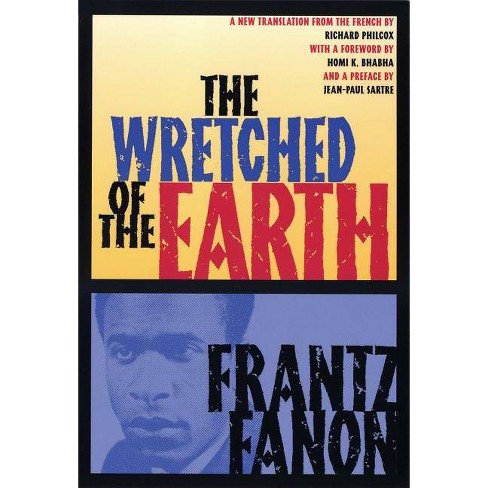
8. The art of always being right - Arthur Schopenhauer
The Father of pessimism, Schopenhauer is second only to Nietzsche in having a great understanding of human nature and a wit to poke fun at our absurdities. He is grumpy, acerbic and hilarious all at once. This book is a light satire on 38 ways one can win an argument if one does not give a toss about the truth or actually reaching agreement.
Quote:
“there are very few who can think, but every man wants to have an
opinion; and what remains but to take it ready-made from others, instead
of forming opinions for himself?”

9. The Republic- Plato
It's been said that all of philosophy is but a footnote to Plato. His broad shoulders carried a mind that was both poetic and political; using beautiful allegories and dialogues to prove his points. In the Republic, Plato talks about justice and what a just society would look like(quite nightmarish actually) , but on the way his storytelling is strong and vision clear that the world needs the just to be strong-surprisingly we see the beginnings of communism, of society needed all people and, feminism-
“If women are expected to do the same work as men, we must teach them the same things.”
. I had to cheat and give hi two quotations.
Quote:
“The heaviest penalty for declining to rule is to be ruled by someone inferior to yourself.”
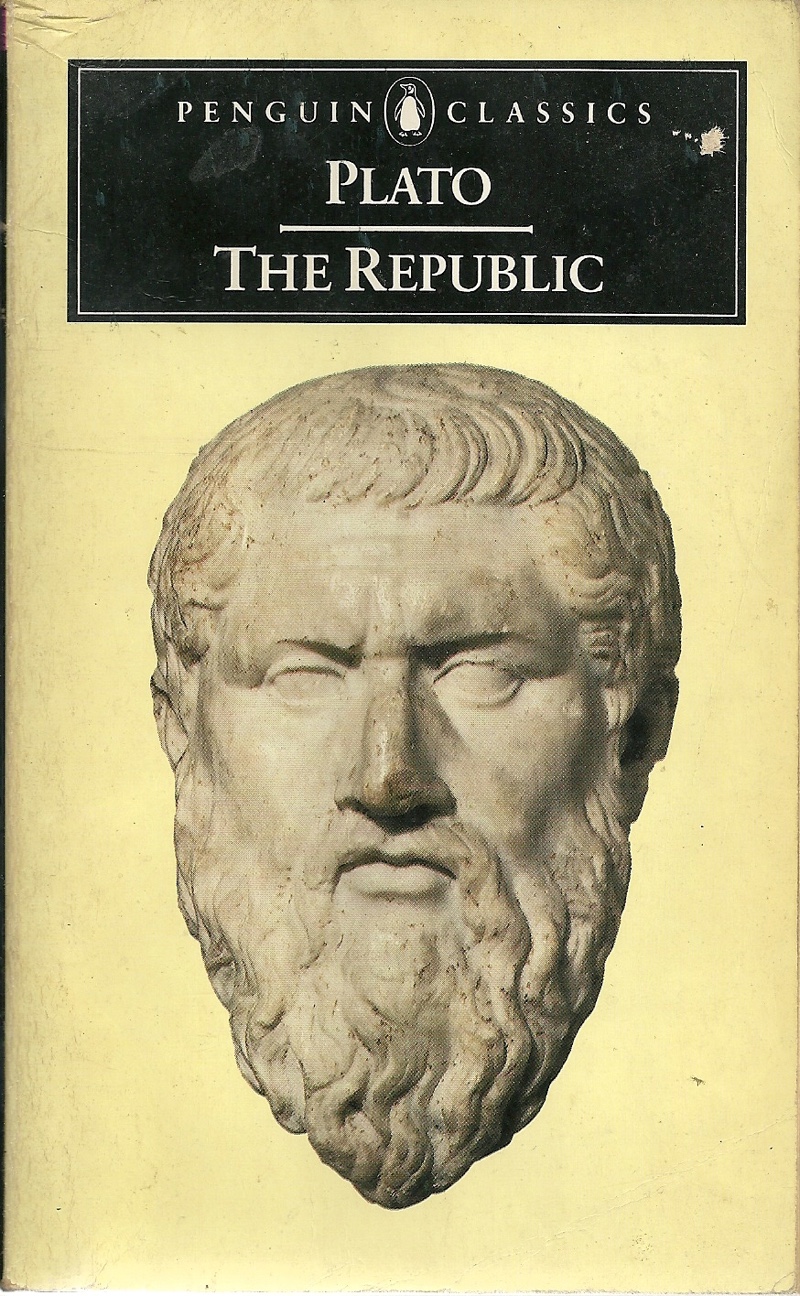
10. Things Fall Apart - Chinua Achibe
The trials of Obi Okwonko, a hardworking yet fearful man trying to navigate life , is a masterpiece that starts off in the culture and ways of the Igbo people of Nigeria through the Okonkwo family , to the coming of the British colonialists and the adjustments made to fit into the new world. It is funny, sad and avoids simplicity. Be sure to follow it up with No longer at ease by Achibe as well.
Quote
“A man who calls his kinsmen to a feast does not do so to save them from
starving. They all have food in their own homes. When we gather
together in the moonlit village ground it is not because of the moon.
Every man can see it in his own compound. We come together because it is
good for kinsmen to do so.”

11. Being and nothingness- Jean-Paul Sartre
Sartre was an intellectual rock star . In the bleakness of the world wars, questions of existence were rife and he was there to pick up where Heideggar, Nietzche and Kierkagaard left off. In this essay, he deals with self deception, free will, what being means and most importantly-nothingness. This is existentialism at it's most self aware.
Quote :
“Time gnaws and wears away; it separates; it flies. And by virtue
of separation--by separating man from his pain or from the object of his
pain--time cures.”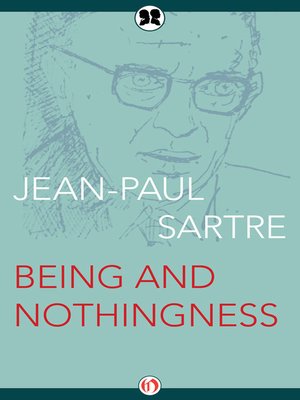
12. Sexual Personae -Camille Paglia
Camille is a machine gun. Not just for the rapid fire delivery of her thoughts but because she doesn't hold back. Like Nieztche, she uses the Apollonian and Dionysian schools( order and rationality, and passion and chaos) that the Greeks had to study decadence and eroticism throughout literature. She shows the power of women throughout the ages in non pc ways and runs counter to many feminist ideas of the 90's when it was published. A polemic, maybe. But a powerful one.
Quote :
Men's delusional certitude that objectivity is possible is based on the
visibility of their genitals. Second, this certitude is a defensive
swerve from the anxiety-inducing invisibility of the womb. Women tend to
be more realistic and less obsessional because of their toleration for
ambiguity which they learn from their inability to learn about their own
bodies. Women accept limited knowledge as their natural condition, a
great human truth that a man may take a lifetime to reach.
13. Zen and the art of motorcycle maintenance
Zen is now such a pop culture icon that it risks ridicule. In this semi autobiographical tale of a cross state motorcycle trip, one rider relies on others to fix his bike while the author relies upon himself to fix the bike-allegory much!? This is more romanticism and stoicism than say Zen Buddhism but it only goes to show the cross pollination of ideas of many Mediterranean, Indus valley and eventually American ideologies.The dialogue is deep without being caricatured and it's paced well enough to keep you thinking through similar conversations you might have had on a long road trip.
IT is the best selling philosophy book of all time. Find out why.
Quote:
“You are never dedicated to something you have complete confidence
in. No one is fanatically shouting that the sun is going to rise
tomorrow. They know it's going to rise tomorrow. When people are
fanatically dedicated to political or religious faiths or any other
kinds of dogmas or goals, it's always because these dogmas or goals are
in doubt.” 
14. Tao Te Ching- Lao
As far as digestible Eastern philosophy gets, Taoism is great starting point. The text is aphoristic and purports to expound on the Dao or the way-in which we are encouraged not to strive to change nature -ziran which means naturalness, or ourselves, but to rest in knowledge of the way and allow it to move us through wuwei(non-action). This work opens the way(pun intended) to Confucianism , and Buddhism if you are so inclined .
Quote:
Of a good leader, who talks little,
When his work is done, his aim fulfilled,
They will say, “We did this ourselves.”

15. 48 laws of power- Robert Greene
Much derided for its overwhelming success( somehow popularity now means in-authenticity) , Robert Greene's masterpiece sat on my self for years because the kind of people that spoke about it weren't the kind of people I wanted to emulate. To paraphrase Lord Russell, don't believe a dull persons report of a wise man's statements. Greene masterfully crafts an intriguing vast work of observations of how people behave, and yes, how they react and reach for power. Rather than seeking to create narcissists , it cautions on how to spot them and to spot your own envies, failings, weaknesses and responses to the power in others and within yourself. Like Machiavelli before him, Greene provides a toolkit, but it's up to you to be a danger to yourself and others in using it or mastering it for good. Plus, its' got great biographies on historical figures.
Quote:
LAW 25
Re-Create Yourself
Do not accept the roles that society
foists on you. Re-create yourself by forging a new identity, one that
commands attention and never bores the audience. Be the master of your
own image rather than letting others define if for you. Incorporate
dramatic devices into your public gestures and actions – your power will
be enhanced and your character will seem larger than life.”
16. SteppenWolf- Herman Hesse
The latest book I'm digesting . An exploration of solitude and a man's struggle to reconcile his human nature and his "wolf nature". The protagonist aims to kill himself because life holds no more for him but ..well, he comes across a magic theater and a pamphlet that has his name on it and describes his life . Then the novel begins.
Quote:
“How absurd these words are, such as beast and beast of prey. One
should not speak of animals in that way. They may be terrible sometimes,
but they're much more right than men...They're never in any
embarrassment. They always know what to do and how to behave themselves.
They don't flatter and they don't intrude. They don't pretend. They are
as they are, like stones or flowers or stars in the sky.”
17. Wealth of Nations - Adam Smith
Capitalism is quickly becoming a bad word, though still a bulwark against the red scare for others. This work is the original treatise that moral philosopher Adam Smith put forward in the 1700's that helped underpin a movement of private property and freedom to trade not out of virtue but out of self interest being the pathway to a more prosperous nation. Smith's insights on human activity are alive with realism and push back against ideas of utopia many seem to place on it. This is a fundamental work on classical economics and a key reflection on the revolution of the world that moved us from feudal to modern economies.
Quote:
It is not from the benevolence of the butcher, the brewer, or the baker,
that we expect our dinner, but from their regard to their own interest.
We address ourselves, not to their humanity but to their self-love, and
never talk to them of our necessities but of their advantages.
18. Communist Manifesto - Karl Marx and Friedrich Engels.
Marx has become the spectre he spoke about that haunted Europe. The man who stood Hegel on his head applies his great mind and process of material dialectic(history progresses due to the relation of different classes to the factors of production in meeting economic needs) to stoke the fires of the communist revolution in Europe. This Marx at his most provocative and most persuasive critiques of Capital. Whether you agree or not, it's important to know what one of the pillars of communism and socialism ACTUALLY believed.
Quote :
“The bourgeoisie, wherever it has got the upper hand, has put an end to
all feudal, patriarchal, idyllic relations. It has pitilessly torn
asunder the motley feudal ties that bound man to his 'natural
superiors,' and has left remaining no other nexus between man and man
than naked self-interest, callous 'cash payment.' It has drowned the
most heavenly ecstasies of religious fervor, of chivalrous enthusiasm,
of philistine sentimentalism, in the icy water of egotistical
calculation. It has resolved personal worth into exchange value, and in
place of the numberless indefeasible chartered freedoms, has set up that
single, unconscionable freedom—Free Trade. In one word, for
exploitation, veiled by religious and political illusions, it has
substituted naked, shameless, direct, brutal exploitation.
19. Man's search for meaning - Viktor Frankl
And now for something light!! Frankl recounts his experiences as a prisoner in Nazi concentration camps and how the application of his method of psychotherapy allowed him to not just live through it but find a meaning and purpose in a condition that was as dehumanizing as it gets. Powerful testimony to the power of the human spirit.
Quote:
“Ultimately, man should not ask what the meaning of his life is, but
rather must recognize that it is he who is asked. In a word, each man is
questioned by life; and he can only answer to life by answering for his
own life; to life he can only respond by being responsible.”

20. Civilization and its discontents- Sigmund Freud
Freud is oft called a fraud-I don't agree though most of his work has been debunked as hard science-he seemed to genuinely believe in it and he possessed a great insight and a gift for analogy for human thinking. Expanding his internal relational model for the human mind of the conscious and unconscious mind to society, he describes the tensions felt by the individual in being true to themselves and being a good citizen of society; Freud as it were said our coping mechanisms for the urges we deem uncivilized can be channeled often into high cultural achievements that belie their low origin , for example instead of aggression and violence, we enjoy a good competitive sport instead and feel better about ourselves.
Quote:
Life, as we find it, is too hard for us; it brings us too many pains, disappointments and impossible tasks. In order to bear it we cannot dispense with palliative measures... There are perhaps three such measures: powerful deflections, which cause us to make light of our misery; substitutive satisfactions, which diminish it; and intoxicating substances, which make us insensible to it.

21. Simulacra and simulation - Jean Baudrillard
The book that could be said is most responsible for the Matrix trilogy, Baudrillard applies astute postmodern philosophy to the study of symbols, meaning and reality to society and how we engage with information. He splits the discussion on the difference between simulation, an imitation of processes and ways of thinking in the world vs simulacra which are copied ideas or symbols of which no originals exists or have ceased to exist .
Quote:
The media represents world that is more real than reality that we can
experience. People lose the ability to distinguish between reality and
fantasy. They also begin to engage with the fantasy without realizing
what it really is.
They seek happiness and fulfilment through the
simulacra of reality, e.g. media and avoid the contact/interaction with
the real world.”

22. The Stranger -Albert Camus
Nobel prize winning work by the effortlessly cool advocate for absurdist stance in the existentialist school. The novel is a bout a man named Mersault who fails to weep at his mother's funeral, kills a man in cold blood on the beach and with an equal amount of indifference. The book is about his trial in which the question of what kind of man lives with seeming indifference to things we hold dear , is raised . And this man is our narrator .
Quote:
“She was wearing a pair of my pajamas with the sleeves rolled up.
When she laughed I wanted her again. A minute later she asked me if I
loved her. I told her it didn't mean anything but that I didn't think
so. She looked sad. But as we were fixing lunch, and for no apparent
reason, she laughed in such a way that I kissed her.”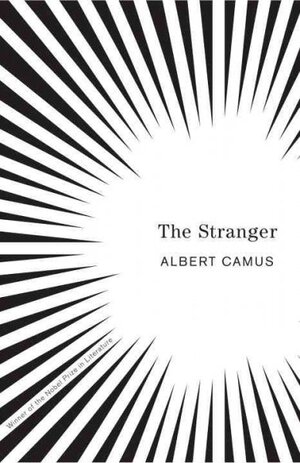
23. The end of history- Francis Fukuyama
With the end of the cold war, western liberal democracy seemed to now be the world order. Fukuyuma brilliantly applies Hegel and Marx's historical dialectic take to assert that we had reached the end. This was only another in continuing victories that liberal republicanism had won since the French revolution-almost proving it was superior. But woe unto any man that attempts to say we have reached the end because in that time global unrest, discord between liberal powers and the rise of theocracies still show that it may never be that case that humanity has one ideology. The book is a both a solid argument for liberalism and a caution that brilliance does not mean omniscience.
Quote:
“The experience of the twentieth century made highly problematic the
claims of progress on the basis of science and technology. For the
ability of technology to better human life is critically dependent on a
parallel moral progress in man. Without the latter, the power of
technology will simply be turned to evil purposes, and mankind will be
worse off than it was previously.”
24. The ascent of money - Niall Ferguson
A financial history of money, Ferguson shows exactly how the social construct that we all need to survive came to be-from Babylon, to Italian merchants to the global economy where money is just bits on a computer. We see the role it played in building empires, facilitating wars, trade, and education. It's an epic if there ever was one . Worth every cent.
Quote:
“poverty is not the result of rapacious financiers exploiting the poor.
It has much more to do with the lack of financial institutions, with the
absence of banks, not their presence. Only when borrowers have access
to efficient credit networks can they escape from the clutches of loan
sharks, and only when savers can deposit their money in reliable banks
can it be channelled from the idle rich to the industrious poor.”

25. Fear and trembling - Soren Kierkagaard
Taken from Philippians 2.12 and the Psalms, the heterodox Christian thinker and "father of existentialism" seeks to work out his salvation in fear and trembling. Kierkegaard considers the different stages of life in this world from the aesthetic life full of passion and maximizing one's self; the ethical life which is other focused and social and moral and lastly the religious life that is a leap of faith beyond living for oneself and for others but for God. He characterizes these modes of thinking in Abraham and asks us to imagine what it means for a man to agree to murder his son for what he believes and if this man can be good int he eyes of the world, and if then it makes sense to be a good person and a Christian.
Quote:
“The ethical expression for what Abraham did is that he meant to
murder Isaac; the religious expression is that he meant to sacrifice
Isaac—but precisely in this contradiction is the anxiety that can make a
person sleepless, and yet without this anxiety Abraham is not who he
is.”

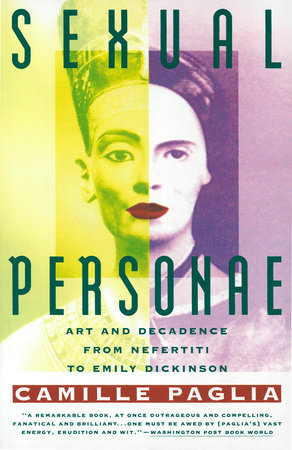




Comments